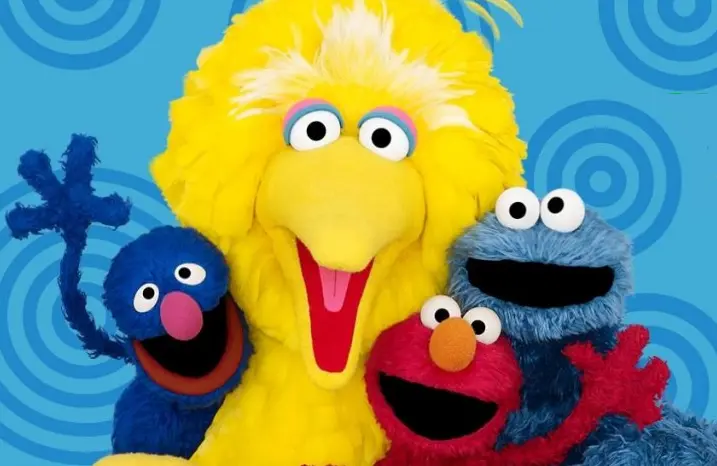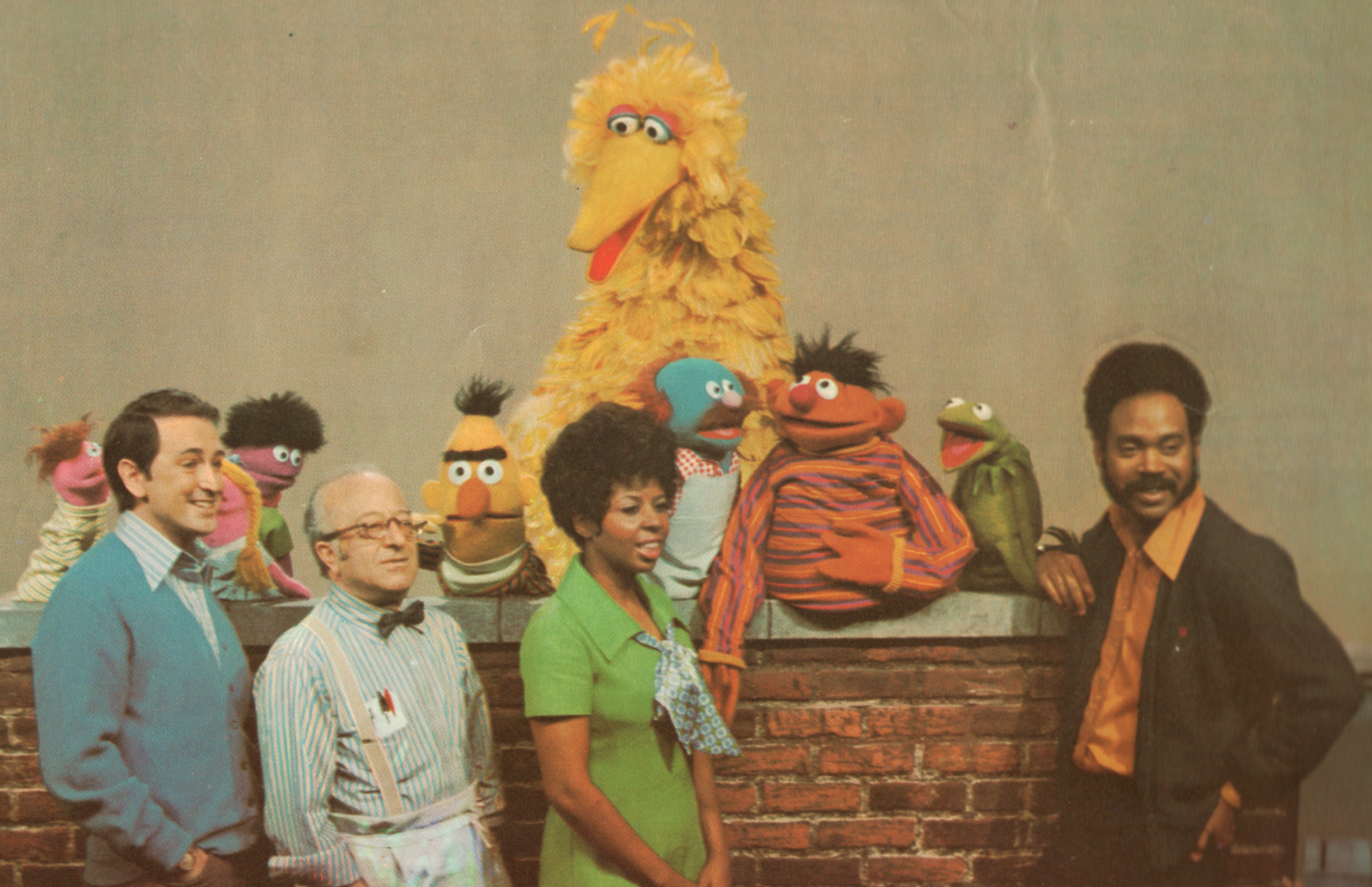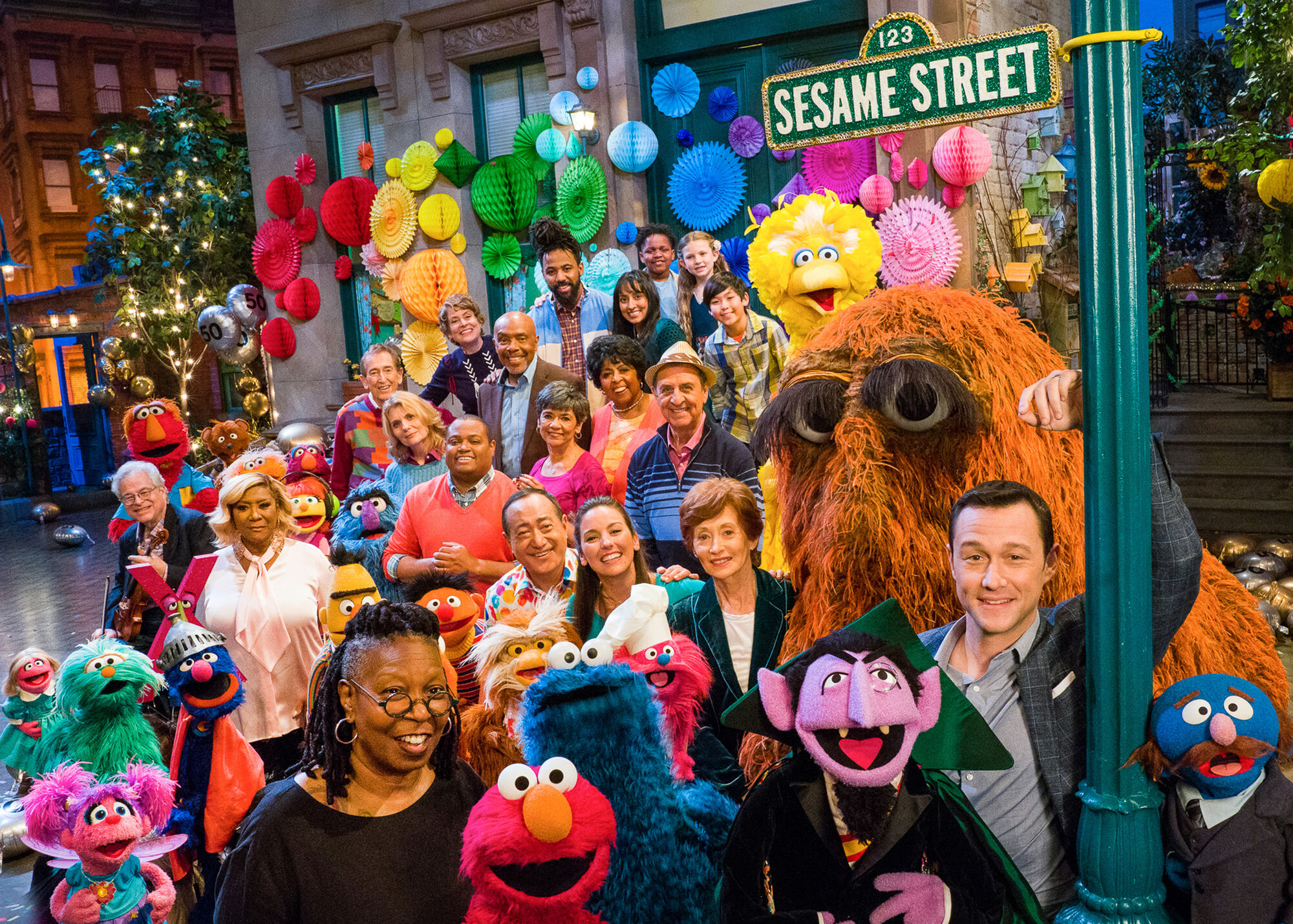Can You Tell Me How To Get To Sesame Street? Just Follow the Story — And the Money
-
 HBO pays tribute to everyone's favorite furry friends in Sesame Street's 50th Anniversary Celebration, premiering this weekend. (Photo: Sesame Workshop)
HBO pays tribute to everyone's favorite furry friends in Sesame Street's 50th Anniversary Celebration, premiering this weekend. (Photo: Sesame Workshop)Two years ago America marked the 50th anniversary of Mister Rogers’ Neighborhood with a documentary that kept hearts and seats warm in arthouse theaters and led to the upcoming feature film with Tom Hanks as Fred. This weekend HBO is commemorating the 50th anniversary of Sesame Street, the original literacy-leveling TV show, with a one-hour special. The Muppets have also appeared in a magazine shoot and a Farmers Insurance ad campaign. I’m not holding my breath for anything like this when my personal favorite, The Electric Company, turns 50 in 2021.
The 1970s were high tide for wacky kids’ live-action TV — all those Sid and Marty Krofft shows, Shazam, Villa Alegre, Big Blue Marble, and another PBS favorite, Zoom. Moving beyond the low-budget exuberance of locally-produced kidfare that dominated the Sixties, these shows were conceptually, if not financially, more ambitious. Their theme songs gave a generation permanent earworms. Even the news divisions got into the act. CBS had its weirdest-sounding announcer, Christopher Glenn, intone hundreds of In the News segments, while strummer Tom Chapin served up a whooshy concoction for ABC News called Make a Wish.
So why are two public-TV shows getting these shining moments in the sun? The obvious answer is the times we’re living in. Like Mister Rogers, the Sesame Street gang inhabited a neighborhood not much bigger than a rec room where kindness was strenuously practiced and humans and puppets taught each other the Golden Rule, over and over and over, while singing catchy songs … over and over and over.

As was true back when Cambodia was being strafed by napalm and Ernie first reached for his rubber duckie, it’s not clear who needs these soothing mantras more, the kids or the grown-ups. In our nation’s contentious capital, the baseball team just won a title while la-la-la-ing about an improbable family of loving sharks.
“There was no question in my mind that television could teach little children,” the creator of Sesame Street, Joan Ganz Cooney, once said. “The trick was to make it entertaining.” But Sesame Street was no trick. As anyone who has read The Tipping Point knows, this was the most heavily-tested TV pilot in history. “Research is woven into the total fabric of the show,” Cooney proudly declared.
And so, while other programs faded to the inevitability of cultural shifts — i.e., bored viewers — Sesame Street and Mister Rogers showed remarkable durability which made them both favorites of educational researchers and effective defenders of federal funding for public media. (In 2012 Mitt Romney had to pledge allegiance to Big Bird while vowing to defund PBS.)
But while Fred Rogers seemed content to stay ar home and play make-believe, Sesame Street yearned to go outside, into the real world, where there were stores and soon entire shopping malls. For at least 30 of its 50 years on television it was a merchandising dynamo. The first vinyl LP of cast songs sold half a million copies, and the “Sesame Street Live” traveling show pioneered a whole category of live entertainment.
The Children’s Television Workshop (now Sesame Workshop) may have had stacks of research backing up its work, but those stacks of Nielsen ratings and financial reports played a big part, too. This is evident from the film that was made about Caroll Spinney, the man who literally inhabited Big Bird for 49 seasons before retiring last year. Spinney was a shy, goofy puppeteer hired by Jim Henson to work alongside himself and Frank Oz developing Muppet characters for Sesame Street. Henson and Oz wanted the bird to be like a country yokel. They also wanted Spinney’s other character, Oscar the Grouch, to be thoroughly unlikable (and orange).
Spinney, the outsider, was so agitated that he almost quit, but eventually higher-ups realized that he had a rare ability to channel, as one producer put it, “the thoughts and fears and questions of a youngster.” And that was money.
At least it was in my household and millions like mine. I’m old enough to remember Season 1 of Sesame Street, when they counted everything, including the episode numbers and how many cakes that klutzy chef was carrying when he fell down. My folks bought me the long-playing record, and the finger puppets, and the read-a-long books, and somewhere along the way I developed a Grover obsession. In the third grade I parlayed this into early stardom when my teacher let me commandeer a class period for a performance featuring my full-sized Grover arm puppet (and yes, Ms. Elliott was a smoker).
But kids’ affection for Grover, Ernie, Bert, and Big Bird paled by comparison with the Elmo mania that swept the nation in the 1990s, seemingly rendering every other life form on the Street irrelevant. I never figured out what that shaggy knockoff in varying colors of red (depending on the merch) had on my Grovie, but that’s kids for you.

Pleasingly, this HBO special has been carefully crafted with call-outs to all generations of Sesame Street viewers. There’s an appearance by Kermit "Thee" Frog, who left the show after rocketing to a stratosphere of fame that Elmo could only dream of. And there’s quality face time with earlier cast members who were unceremoniously written out of the show after HBO bought a stake and reduced the episode time to 30 minutes. (New episodes air first on HBO, then nine months later on PBS stations.) Kermit duets with Elvis Costello on “It’s Not Easy Being Green,” one of several hits from the early years that are reprised with help from celebrity guests including Whoopi Goldberg, Sterling K. Brown, Norah Jones, and Meghan Trainor.
One of the discoveries of Cooney’s TV research was that children liked watching real and fantasy characters interacting. Thus the HBO special centers on the current cast of Muppets, none of whom I recognize, trying to hide from their human friend Joe, aka Joseph Gordon-Levitt — who may yet appear in that long-promised-never-delivered Fraggle Rock film — that the street’s iconic green lamppost sign has gone missing. They don’t want to disappoint Joe, who really wants a photo with the gang under the street sign to mark the big 5-0.
This story throughline is key, and is the most enduring, if not endearing, legacy of Sesame Street. At the time of its debut the show looked less like Mister Rogers Neighborhood’s older sibling and more like a kids’ version of Rowan and Martin’s Laugh-In, the No. 1-rated show on TV in 1969. As Malcolm Gladwell pointed out in his book, however, Laugh-In’s joke dispensary operated at a level both too frenetic and too subtle for children. After all, the ritual bedtime request of a five-year-old is not, “Tell me a joke.”
At a time when punchlines and non sequiturs were entertaining adults, Sesame Street research was clearly showing that kids glommed onto narrative. And it was only a matter of time before marketers confirmed this insight. It’s afinding that went on to eat the world like a frenzied monster boring through a box of cookies. From manufacturing widgets to buying coffee to hawking insurance, story sells, regardless of your age.
It might just be the most Sixties thing ever. Folk singers, hippies, and even mainstream voices were saying let the children lead us. And we let them lead us straight down Sesame Street to the end of the rainbow — and whaddya know, there was a pot of gold waiting.
Sesame Street 50th Anniversary Celebration premieres Saturday November 9th 2019 on HBO.
People are talking about Sesame Street in our forums. Join the conversation.
Aaron Barnhart has written about television since 1994, including 15 years as TV critic for the Kansas City Star.
TOPICS: Sesame Street, HBO, PBS, The Electric Company, Mister Rogers' Neighborhood, Caroll Spinney, Joseph Gordon-Levitt, Tom Hanks, Sesame Workshop